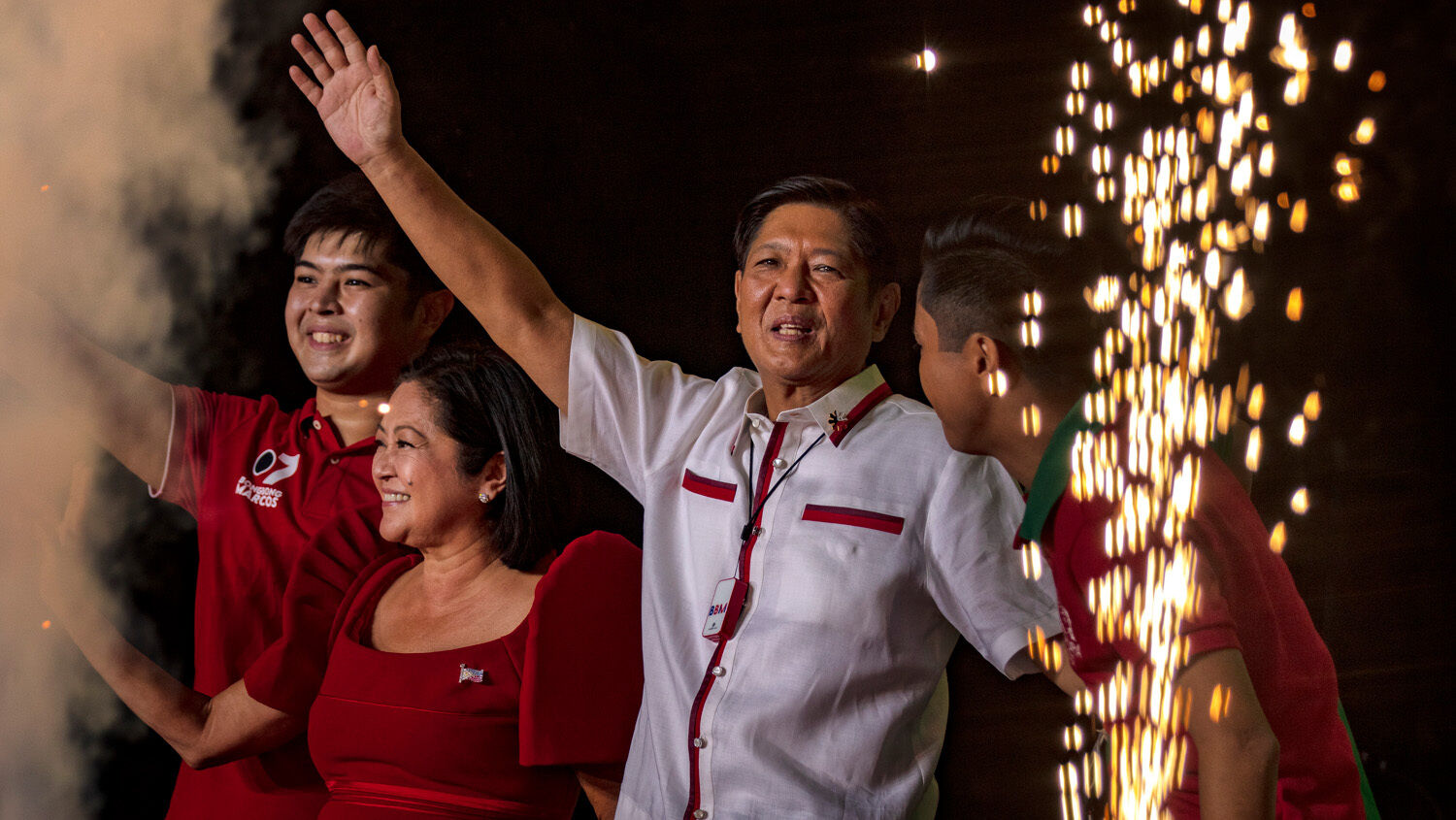
Ferdinand Marcos Jr. Wins Philippine Election
Ferdinand “Bongbong” Marcos Jr. won the Philippine presidential elections on May 9. The 64-year-old won by a landslide, receiving roughly 30.5 million votes out of 67 million. His closest rival received less than half of that. His running mate, Sara Duterte-Carpio, was elected as vice president. (In the Philippines, the president and vice president are elected separately.)
The current president of the Philippines is Rodrigo Duterte, Sara’s father. Marcos is scheduled to replace Duterte on June 30. However, the Philippine Commission on Elections is currently examining disqualification cases against Marcos. The results of these cases remain to be seen.
Marcos’s win is noteworthy because of his family connection. Marcos is the son of late Philippine dictator Ferdinand Marcos Sr., who ruled from 1965 to 1986. From 1965 to 1972, Marcos Sr. governed as a democratically elected president. He introduced much-needed infrastructure development and cracked down on crime. But amid widespread unrest in the early 1970s (including a student-led mob storming the presidential palace), Marcos Sr. declared martial law in 1972.
The martial law period is extremely controversial. The Philippine legislature was dissolved; Marcos Sr. took all legislative power to himself. Habeas corpus was suspended and political opponents were jailed. All newspapers and broadcast stations were shut down; when they reopened, Marcos’s allies controlled all of them under censorship from Manila. The Philippine government was fighting Communist and Islamist insurgencies at the time, so there were national crises that may have warranted martial law. But that doesn’t justify the mass crackdown of civilian freedoms. Martial law would last until 1981, but Marcos Sr. would continue as president through a most likely fraudulent election.
The Marcos family is most infamous for turning the Philippines into a gigantic kleptocracy. It’s estimated Marcos Sr. embezzled approximately $10 billion while 40 percent of Filipinos lived on less than $2 a day. His wife, Imelda Marcos, was notorious for her extravagant lifestyle; she reportedly had a shoe collection of about 3,000 pairs.
A popular uprising in 1986 forced the family into exile in the United States. Marcos Sr. died in Honolulu in 1989. Marcos Jr. returned to the Philippines in 1991.
With this family legacy, what can we expect from a President Ferdinand Marcos?
We actually don’t know too much. Marcos’s campaign has been relatively opaque. He skipped three presidential debates and has avoided interviews. But we do know that many of his supporters voted for him in the hope that he’ll continue Rodrigo Duterte’s legacy. He pledged to continue Duterte’s “Build! Build! Build!” infrastructure program. He also supported Duterte’s pivot to China. “The policy of engagement that the Duterte government is doing, although it is criticized, is the right way to go,” he said before announcing his candidacy. He chose Duterte’s daughter as his running mate (although how close Rodrigo and Sara are to each other is debatable; Rodrigo Duterte has previously called Marcos “weak”).
Duterte is most well known for his controversial war on drugs. To combat the nation’s drug addiction problem, Duterte has advocated for extrajudicial killings of drug dealers—as well as critics. He has muzzled the Philippine free press. He has tried to pivot the Philippines away from America, its traditional ally, and toward China. If Duterte’s legacy is any indication, the Philippines is heading toward more strongman leadership. (Duterte said he plans to spend his political retirement “riding on a motorcycle [searching] for drug peddlers, [to] shoot them and kill them.”)
It’s unknown how close a Marcos presidency would bring the Philippines toward China. Although he has endorsed Duterte’s rapprochement with China, he also said not to “make the mistake of counting America out.” He also claimed the Philippines has a “very special relationship” with America. Washington hosted the Marcos family in exile. So Marcos Jr. may be friendlier to the U.S. than his predecessor. Or, as the son of a dictator hated by America’s liberal establishment, he may reach out to Beijing further. Marcos is also ignoring a lawsuit in the U.S. courts demanding compensation from him for his family’s embezzlement. He also has had previous business dealings with China.
The Trumpet bases its Asia analysis on a prophecy found in the book of Revelation. Revelation 16:12 speaks of a geopolitical group called “the kings of the east.” Revelation 9:16 shows that this group will control an army of 200 million men. Only the giants of Asia could field such a force.
A related prophecy in Ezekiel 38 states that the nations of “Rosh” and “Magog,” prophetic names for Russia and China, will lead this bloc (verses 1-2). Verse 9 says this Asian army will “ascend and come like a storm.” Revelation 9:18 says that the armies of Asia will kill a third of all mankind. Asia uniting will shake the world.
Whether the Philippines will join this alliance or not remains to be seen. But the Philippines has an estimated 114.6 million people. That 114.6 million has a lot of able-bodied young men within it that could help field a massive army. And if Marcos does end up pivoting more to China, then the Philippines could very well form a part of this “kings of the east” alliance.
If you would like to learn more, please request a free copy of our booklet Russia and China in Prophecy.
